Researcher of the year 2021 at the Institute for Cancer Research: Kay Oliver Schink
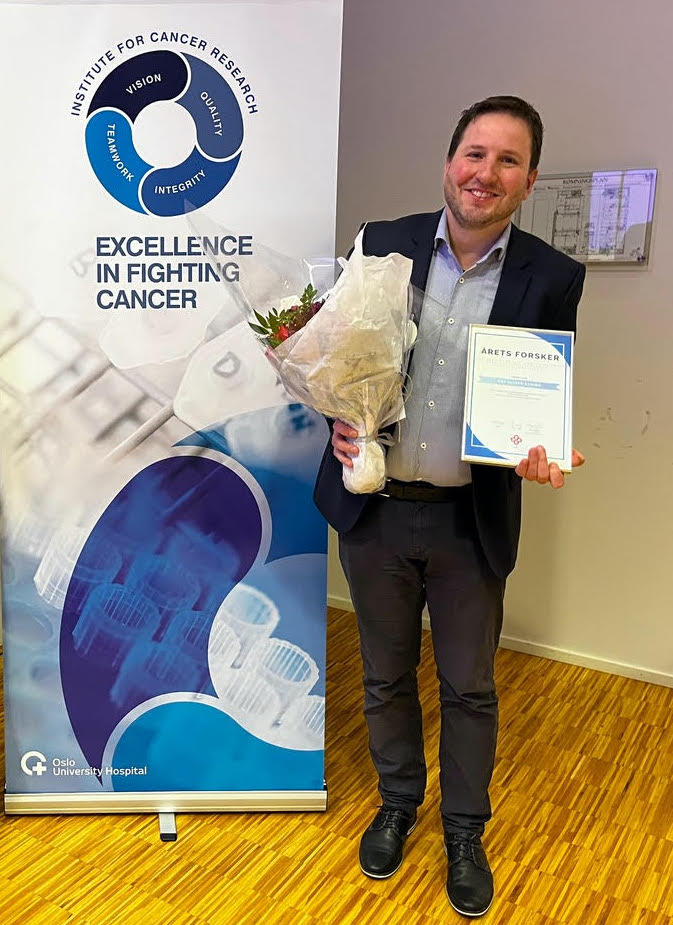
Kay Schink – project group leader at Institute for Cancer Research - was on December 15th awarded the prize Research of the Year from the leadership at ICR for his groundbreaking scientific contributions.
The award of 100 000 NOK is financed by the Radium Hospital Foundation (Radiumhospitalets legater) and is a personal scholarship for stimulating further excellence in research.
The leadership group highlights the important work Schink has done on identifying the molecular machinery that regulates the specific variant of endocytosis called macropinocytosis (cellular drinking). Marcropinocytosis allows the cells to take up large amount of extracellular liquid. Normally, this process is used by immune cells to “scan” body fluids for foreign substances. However, it is also exploited by cancer cells, which use this process to take up additional extracellular proteins and amino acids to fuel their growth.
Dr. Schink has published several high impact papers, including a work published in the reputable journal "Nature Communications". In this publication Schink identifies a new regulator of macropinocytosis, the protein Phafin2. Phafin2 modulates the cellular cytoskeleton and is required for macropinocytosis. This protein is also highly expressed in many aggressive cancers, and his current research focus is to understand how these cancers utilize macropinocytosis. Especially aggressive or highly invasive cancers, for example KRAS-transformed pancreatic cancer, rely on this mechanism to take up additional nutrients. The long term aim is to identify new drug targets to inhibit macropinocytosis, which could open new ways to disrupt the nutrient supply routes of aggressive cancers.
Another major focus of Schink’s group is technology development. His research relies heavily on cutting-edge imaging methods. He has established several new microscopy technologies like the newly developed light sheet microscope – one of the first ones of this kind in the world – which allows fast, high resolution, 3D imaging of cells with minimal photodamage over long time periods. To ensure that these technologies are available to other researchers in the institute, Schink works in close collaboration with the Advanced Light Microscopy Core Facility, and his expertise has led to multiple collaborations within the institute, nationally, and internationally.
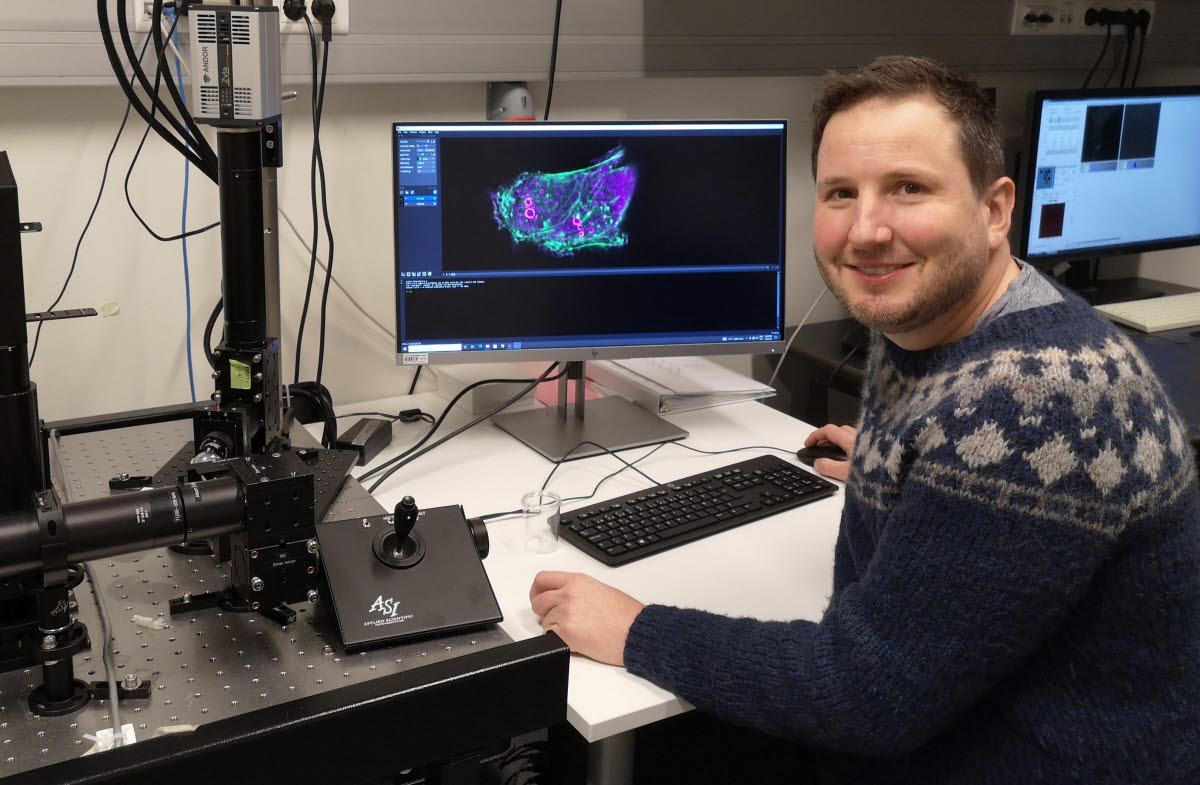
Links:
Project group headed by Kay Oliver Schink:
Phosphoinositide control of early endocytic trafficking
Kay Oliver Schink's publications
News article from ous-research.no:
Kay Oliver Schink identifies a new regulator of macropinocytosis, an important mechanism for nutrient acquisition by cancer cells
Department of Molecular Cell Biology
News article from Dagens Medisin (in Norwegian):
Vant kreftforskningspris
Slideshow from the ceremony:
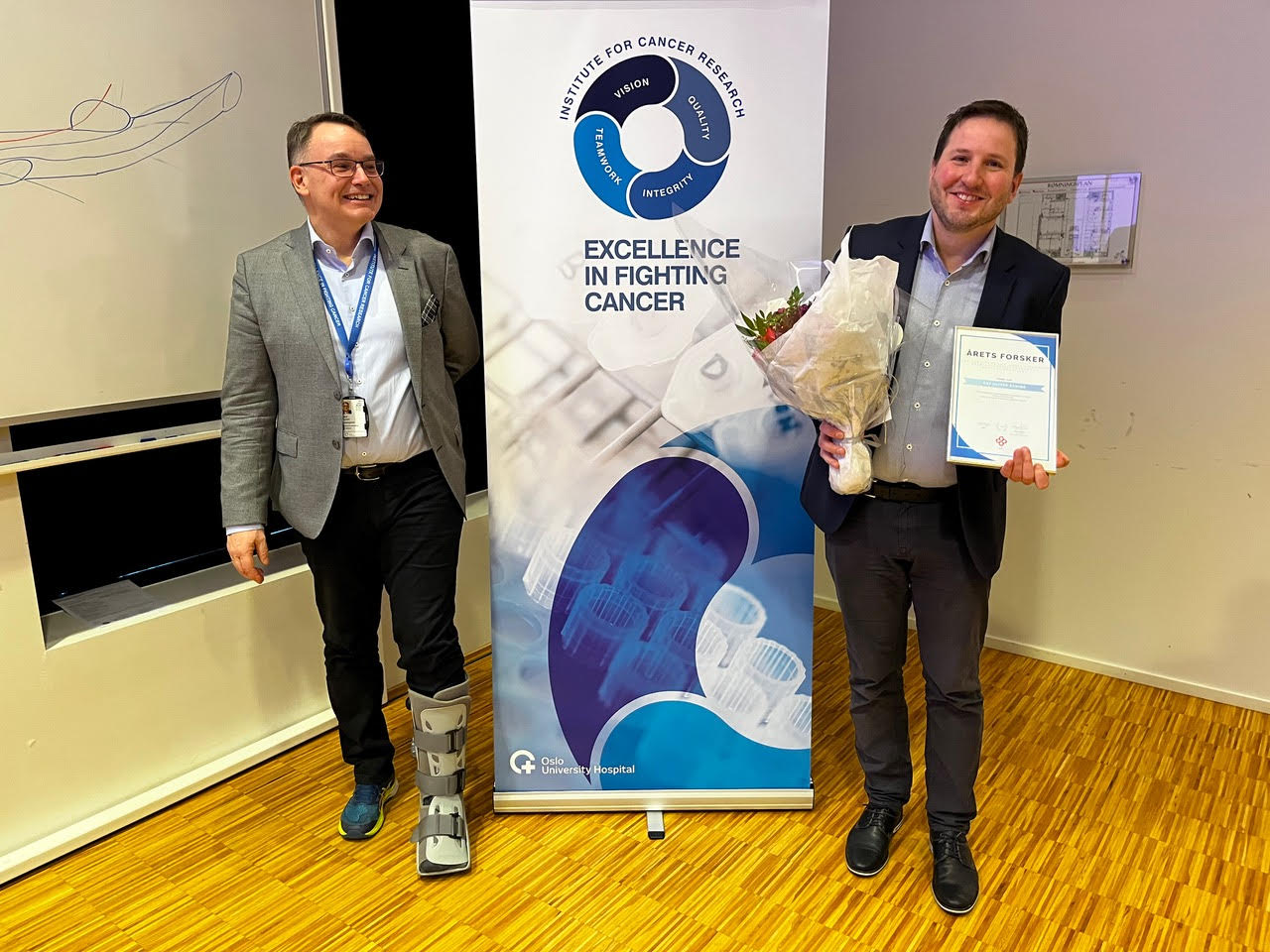
|
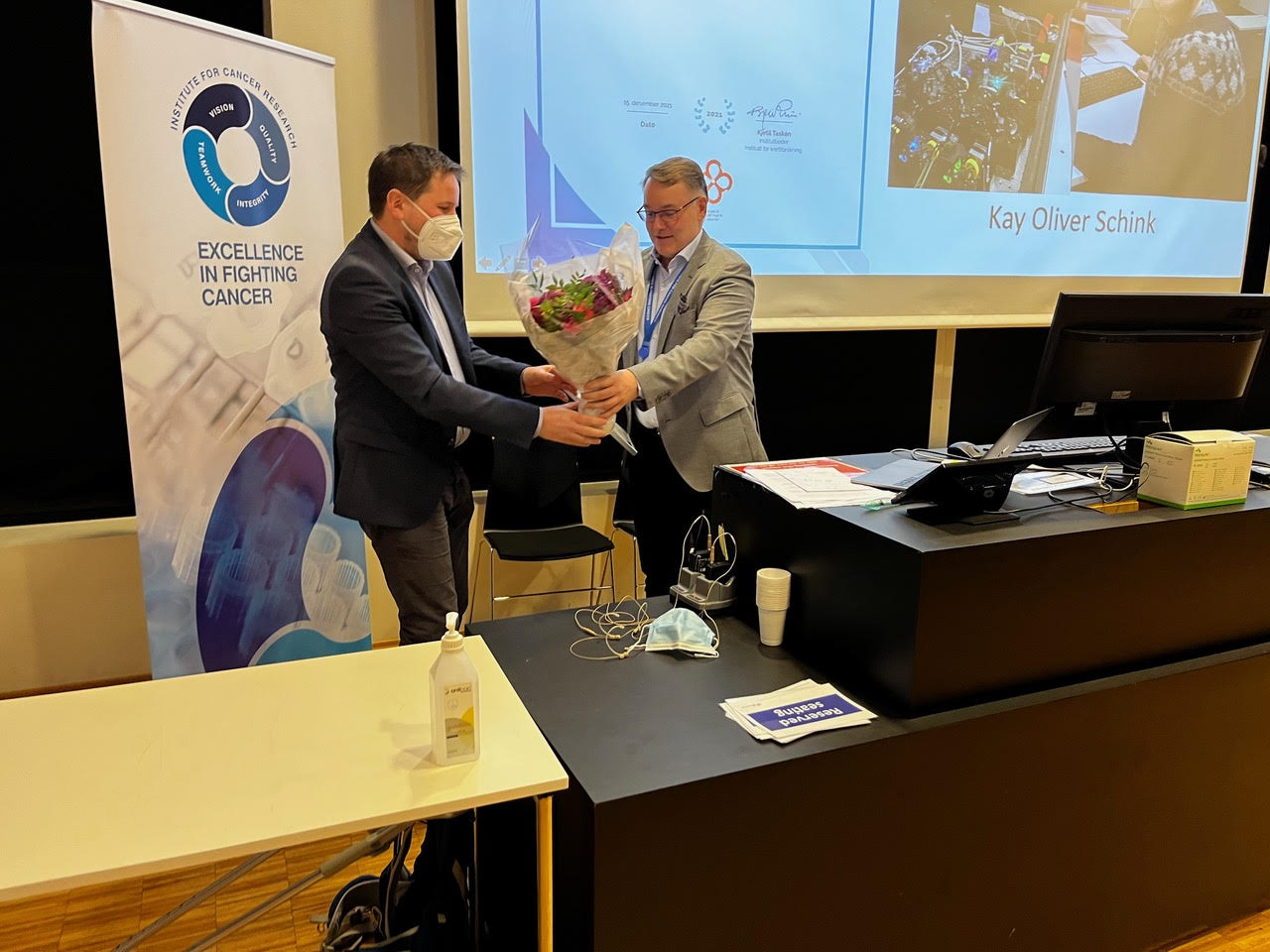
|
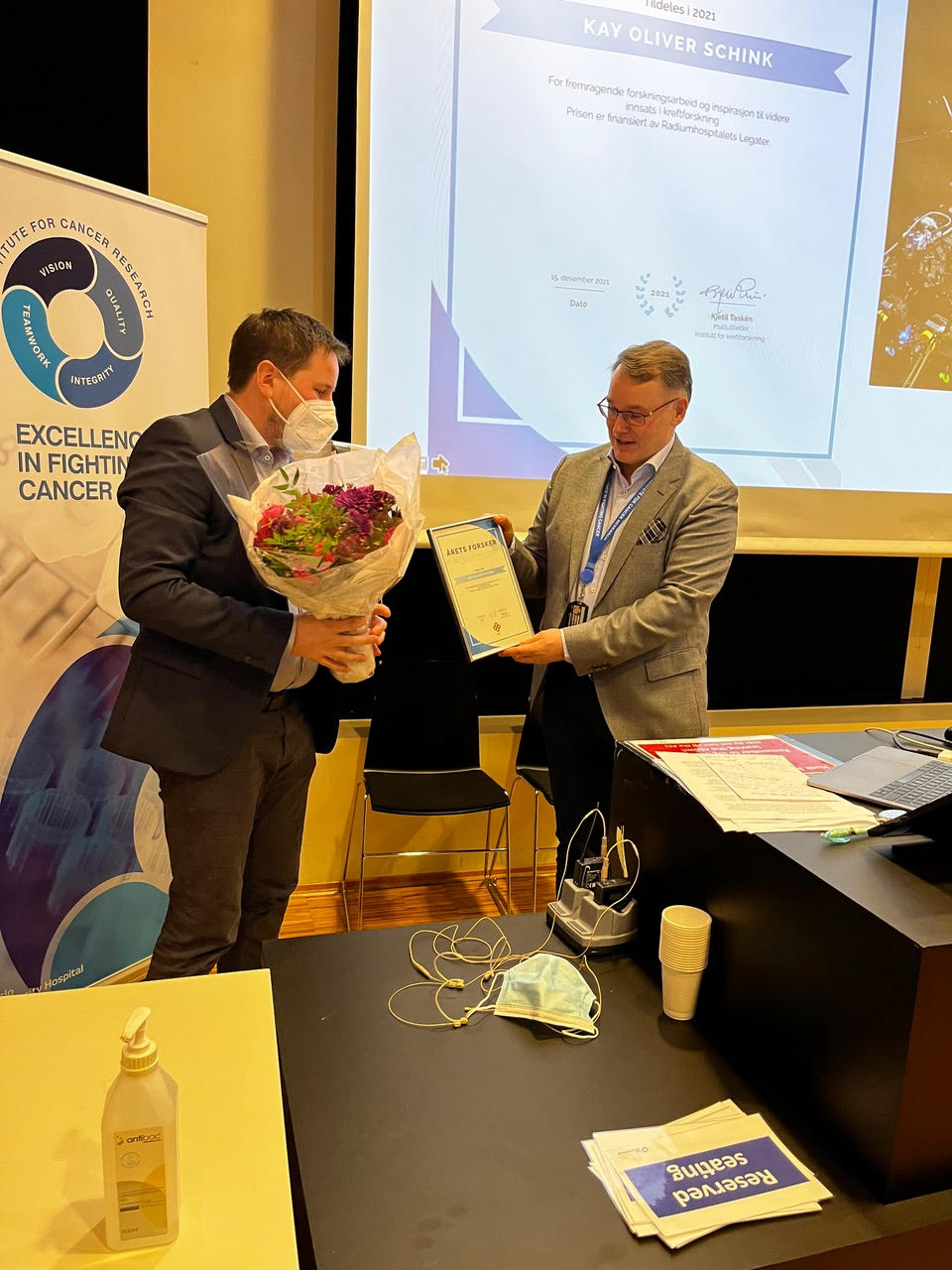 |
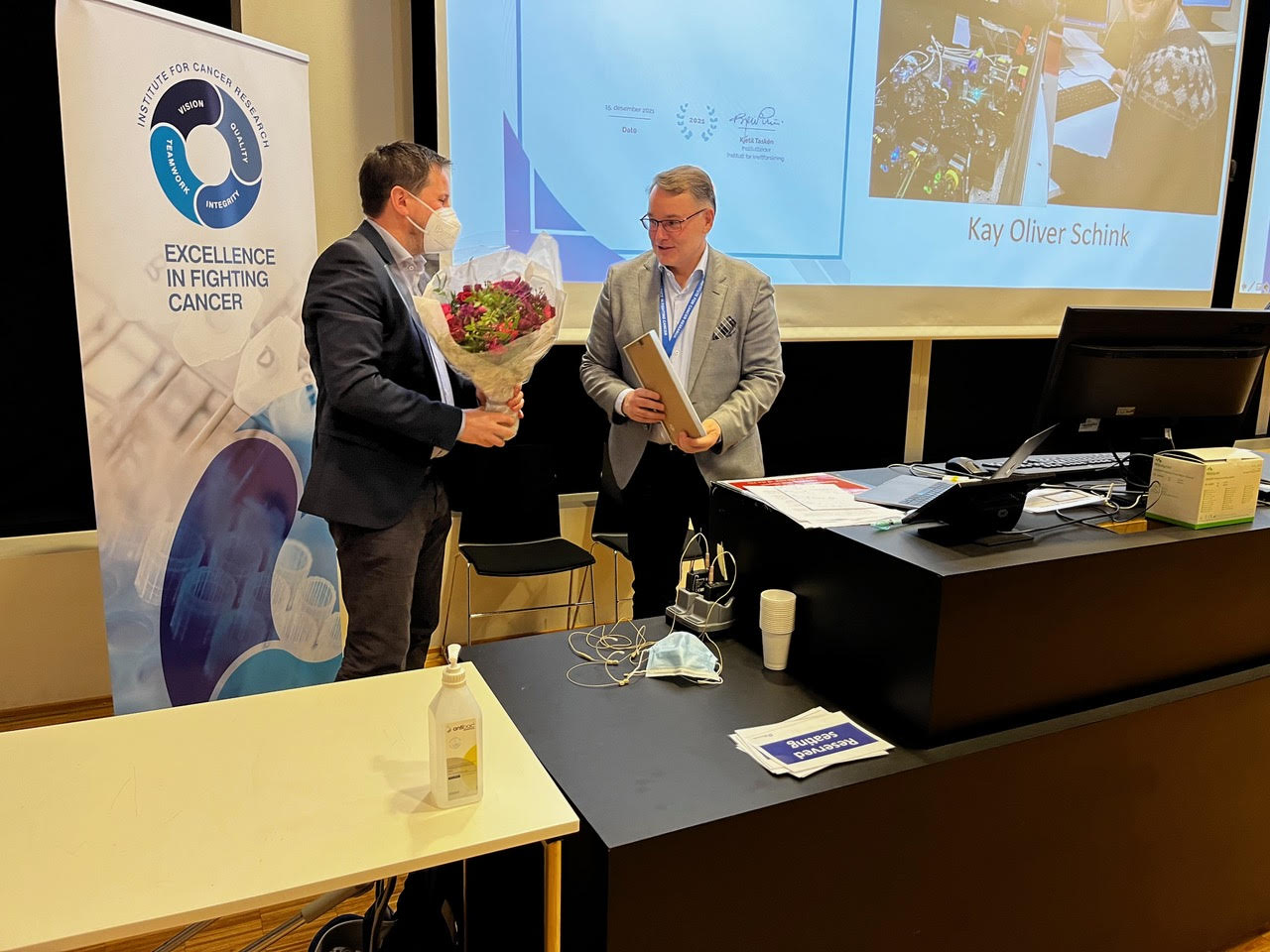 |
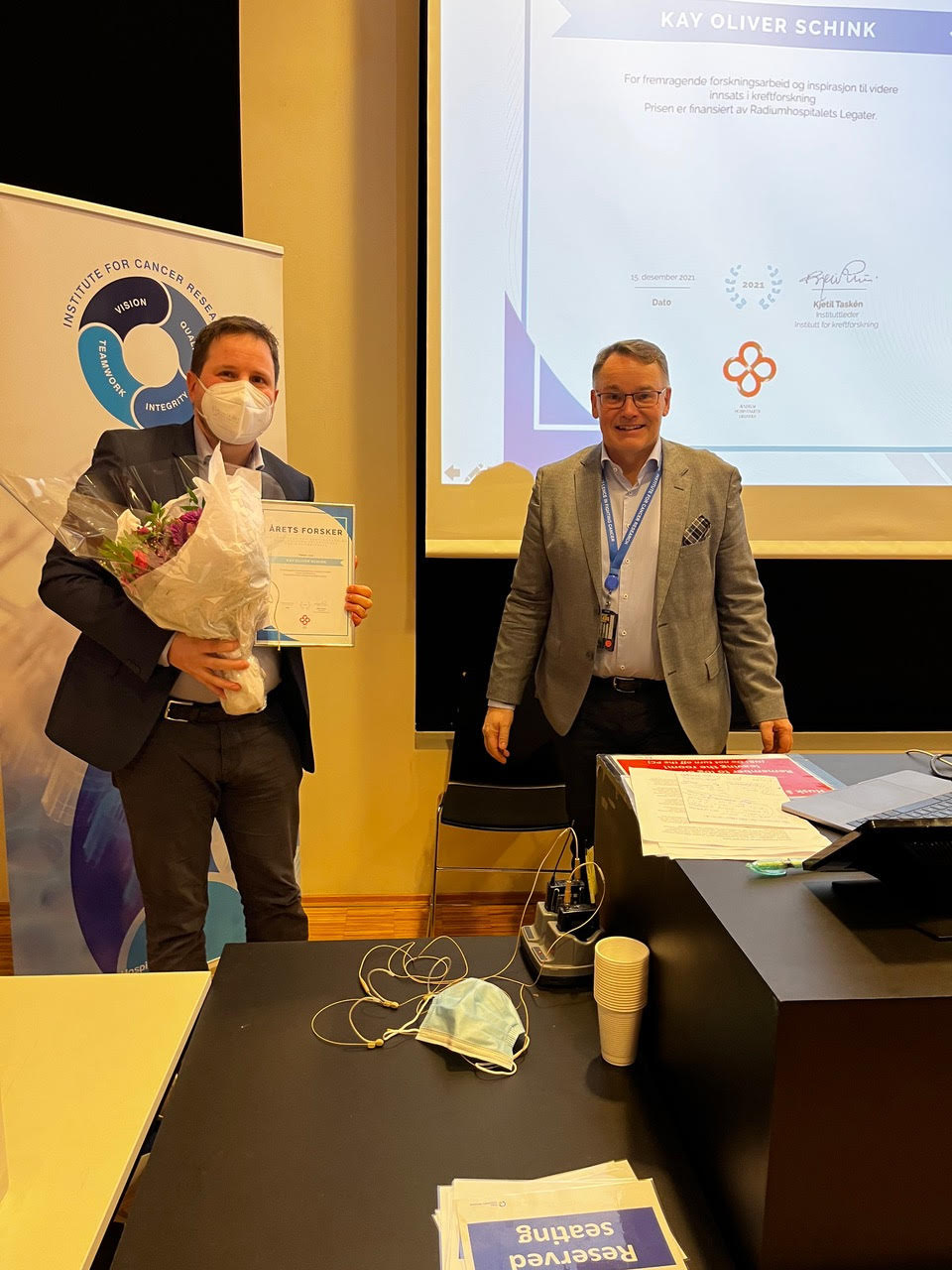 |
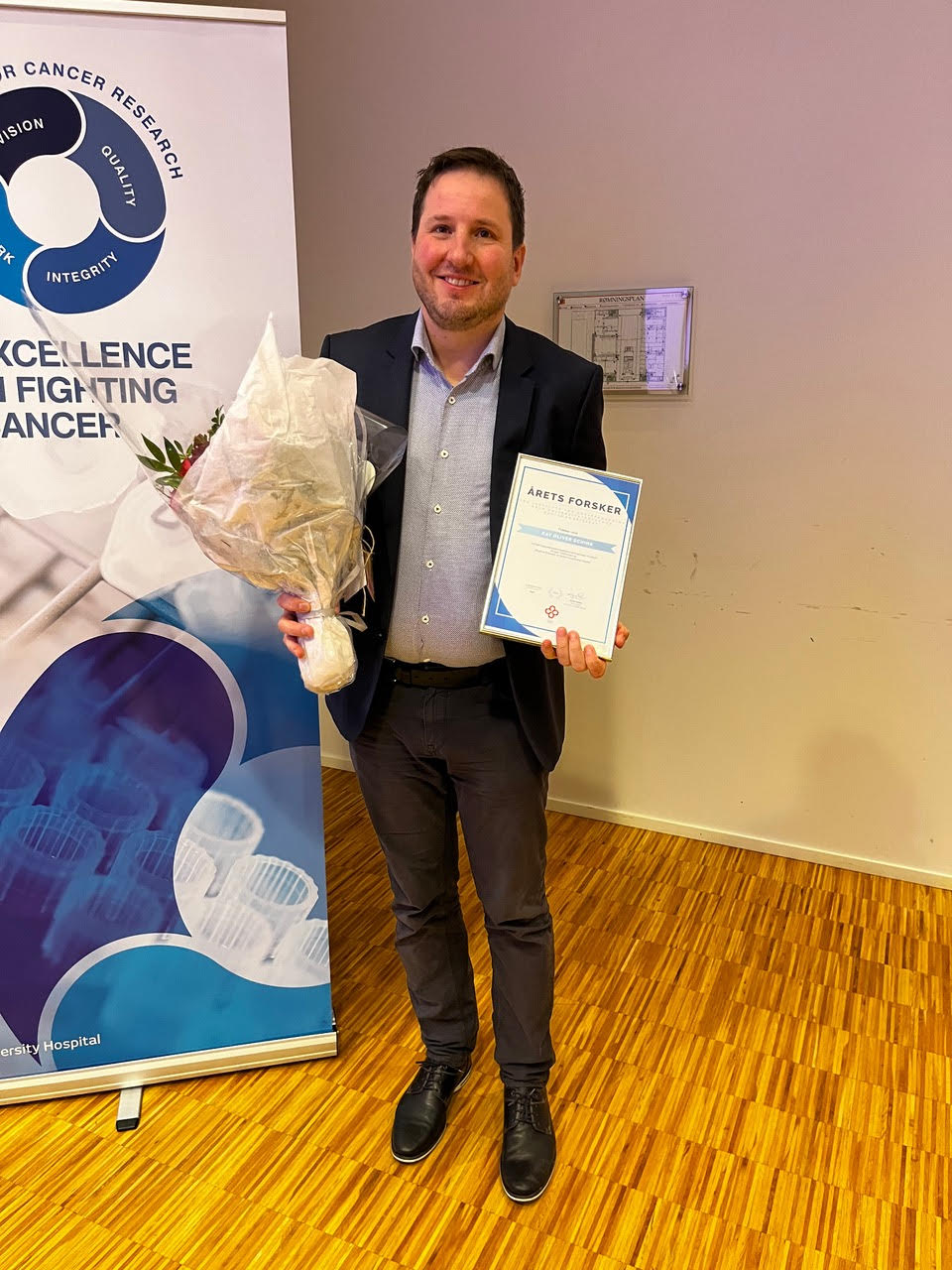 |
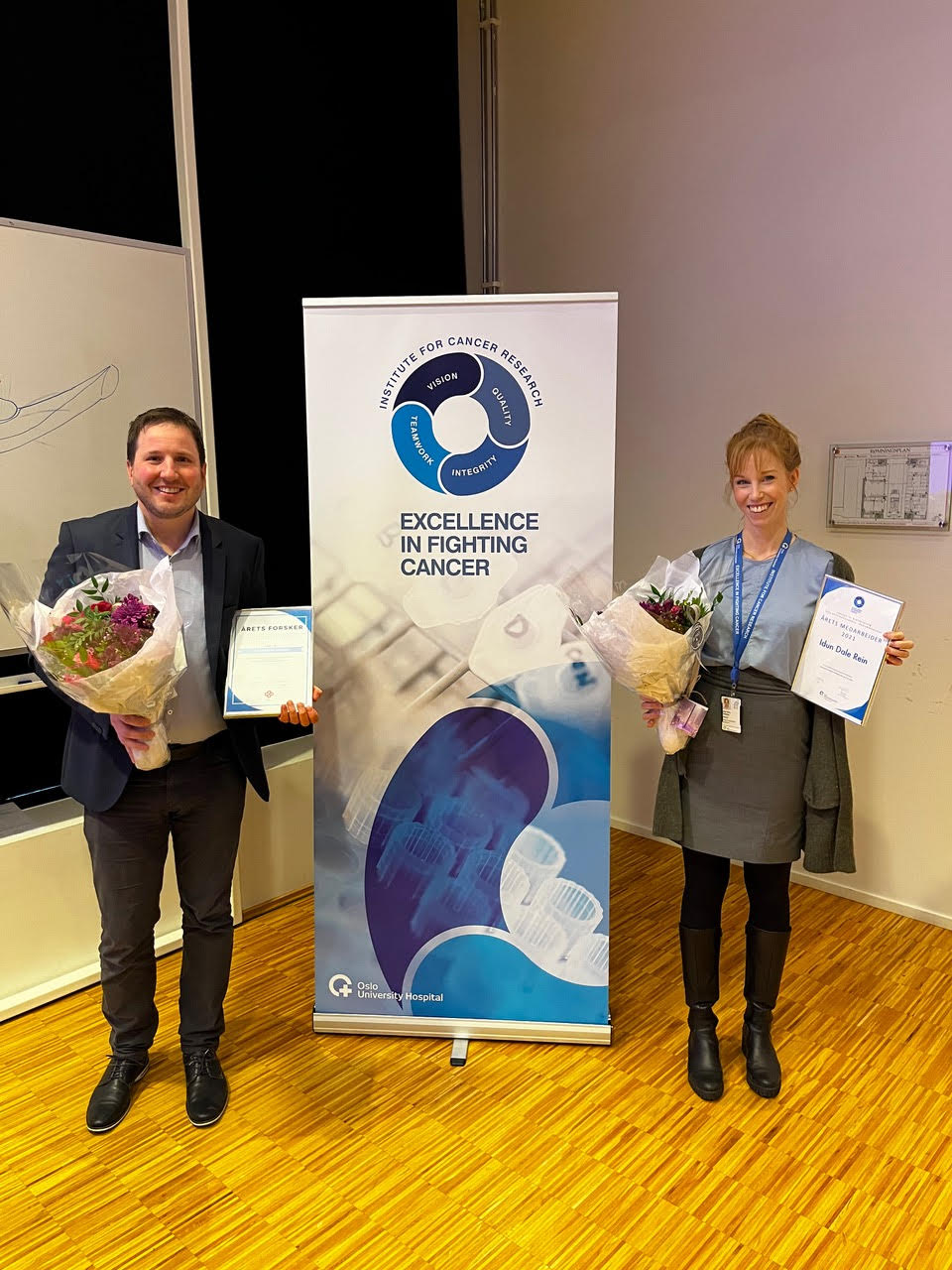
|
